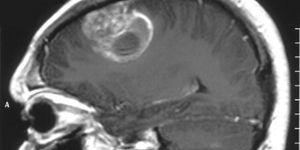Depression Has a Deadly Influence on Heart Disease
Researchers at the Intermountain Medical Center Heart Institute in Salt Lake City have determined that depression is the strongest predictor that death will occur in the first decade after a heart disease diagnosis. The study will be presented at the 66th Annual Scientific Session of the American College of Cardiology in Washington, D.C.; it found patients with coronary heart disease who also experience depression are roughly twice as likely to die when compared with heart disease patients who are not diagnosed with depression.
"Our study shows that it doesn't matter if depression emerges in the short term or a few years down the road - it's a risk factor that continually needs to be assessed," said the lead author of the report, Heidi May, PhD, MSPH, a cardiovascular epidemiologist at the Intermountain Medical Center Heart Institute in Salt Lake City. "I think the take-home message is that patients with coronary disease need to be continuously screened for depression, and if found to be depressed, they need to receive adequate treatment and continued follow-up."
The researchers focused on patients diagnosed with stable angina or unstable angina, or heart attack. All of those conditions result from an impaired flow of blood carrying oxygen to the heart, which usually happens because plaque builds up in the arteries of the heart. Coronary heart disease is an umbrella term for these disorders, when taken together they are the most common form of heart disease, responsible for the deaths of around 370,000 people in the U.S. every year.
It's known that heart disease and depression are linked together, with both increasing the likelihood of the other. This study has shown how devastating the long term impacts of this relationship are. "The majority of studies evaluating depression following a heart disease event have occurred within 30 days of the event," said May. "We sought to determine if the risk of all-cause mortality associated with depression varies with time between the diagnosis of heart disease and a follow-up depression diagnosis."
This work encompasses 25,000 patients that were followed for an average of ten years after coronary heart disease diagnosis. About 15 percent of patients were subsequently diagnosed with depression (a larger segment when compared to the general population, which experiences depression at a rate of seven to ten percent).
3,646 people in the study had a follow-up diagnosis of depression; half of those patients died while the study was ongoing. In the 20,491 people that did not receive A diagnosis of depression, 38 percent died. The bottom line: after a heart disease diagnosis, people that were depressed were twice as likely to die compared to those that were not.
May was surprised by the findings. "I thought depression would be significant, but not the most significant predictor," she added.
The researchers confirmed the data after correcting for other diseases, age, gender, risk factors, medications, heart attack or chest pain, and follow-up complications. Depression remained the strongest predictor of death in this group of patients. The researchers suggested that clinicians use these findings, and should seek to identify depression in heart disease patients, and help them deal with it.
"It can be devastating to be diagnosed with coronary artery disease. Clinicians need to pay attention to the things their patients are expressing, in terms of both physical symptoms as well as emotional and nonverbal factors," explained May.
Depression includes a variety of symptoms including difficulty sleeping, feelings of hopelessness, anxiety, a loss of interest in hobbies, among other things. It is also associated with behaviors that are bad for cardiovascular health like a poor diet, reduced physical activity, increasing use of tobacco and alcohol, and poor compliance with medical treatment. Learn more about it in the video above.
"There is a lot more research that needs to be done with depression and heart disease. Moving forward, we would like to further assess treatment affects, severity of symptoms, and other comorbidities that may put a patient at an increased risk of death," May concluded.
This work will be presented at the American College of Cardiology's 66th Annual Scientific Session in Washington, D.C.
Sources: AAAS/Eurekalert! via Intermountain Health Care








